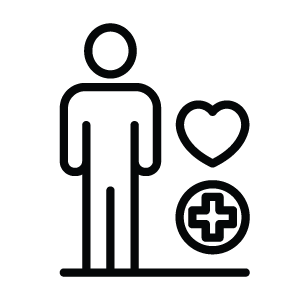
Breast Cancer Screening
Breast cancer screeningexternal means checking a woman’s breasts for cancer before there are signs or symptoms of the disease. The goal of screening tests is to find cancer at an early stage when it can be treated and may be cured. Sometimes a screening test finds cancer that is very small or very slow growing.
- Breast cancer is a disease in which malignant (cancer) cells form in the tissues of the breast.
- Breast cancer is the second leading cause of death from cancer in American women.
- Different factors increase or decrease the risk of breast cancer.
Mammography
Mammography is a specific type of imaging that uses a low-dose x-ray system for examining the breasts. The images of the breasts can be viewed on film at a view box or as soft copy on a digital mammography work station. Most medical experts agree that successful treatment of breast cancer often is linked to early diagnosis. Mammography plays a central part in early detection of breast cancers because it can show changes in the breast up to two years before a patient or physician can feel them. Current guidelines from the U.S. Department of Health and Human Services (HHS), the American Cancer Society (ACS), the American Medical Association (AMA) and the American College of Radiology (ACR) recommend screening mammography every year for women, beginning at age 40.
The National Cancer Institute (NCI) adds that women who have had breast cancer and those who are at increased risk due to a genetic history of breast cancer should seek expert medical advice about whether they should begin screening before age 40 and about the frequency of screening.
Mammography is used to aid in the diagnosis of breast diseases in women. Screening mammography can assist your physician in the detection of disease even if you have no complaints or symptoms.
Initial mammographic images themselves are not always enough to determine the existence of a benign or malignant disease with certainty. If a finding or spot seems suspicious, your radiologist may recommend further diagnostic studies.
Diagnostic mammography is used to evaluate a patient with abnormal clinical findings, such as a breast lump or lumps, that have been found by the woman or her doctor. Diagnostic mammography may also be done after an abnormal screening mammography in order to determine the cause of the area of concern on the screening exam.
Tomosynthesis
Breast cancer is the most common cancer in women. To treat it, you must find it. If you find it early, you have a greater chance of an accurate diagnosis and effective treatment plan. Your very best defense is early detection and diagnosis, made possible through an annual screening mammogram. At Saint Mary’s Regional Medical Center, we commit ourselves every day to matching our compassionate care for women with state-of-the-art mammogram technology. That is why we now offer wide-angle 3D breast tomosynthesis. It’s new mammography technology that gives every woman her best chance for an early and accurate diagnosis.
The Game-changer In Mammograph
The gold standard in breast cancer screening has been digital 2D mammography. These mammograms suffer from decreasing sensitivity in women with dense breasts, or when breast tissue overlaps. The result can be unclear images that leave doctors unsure of what they see, and can lead to cancers being missed.
- Up to 30% of cancers go undetected by standard mammography
- 52-76% of cancers are missed in dense breast tissue, where tumors are more dffcult to identify
That changes with wide-angle breast tomosynthesis.
Automated Ultrasound Dense Breast Tissue Screening
Saint Mary’s is proud to offer Automated Breast Ultrasound (ABUS), the region’s only FDA approved screening technology for dense breast tissue. Roughly 40% of women who get an annual mammogram have dense breast tissue. This new technology compliments traditional mammography and gives women peace of mind knowing they have a local option to detect cancer earlier. To find out whether you have dense breast tissue, contact your primary care physician for a referral. Or to learn more, call 775-770-3187.
Our Services
Our all-encompassing health care services ensure you receive the correct diagnosis and treatment for any oncological condition.

Biopsy Services
Diagnostic Testing

Dietary Coaching

Infusion Services

Prevention and Screenings

Radiation Therapy and Technology

Research and Clinical Trials

Support Services

Testimonials
Your Health Starts Here
Flexible appointments
We are happy to serve you.
Same Day Appointments are Available. We also offer 24/7 chronic care management.

